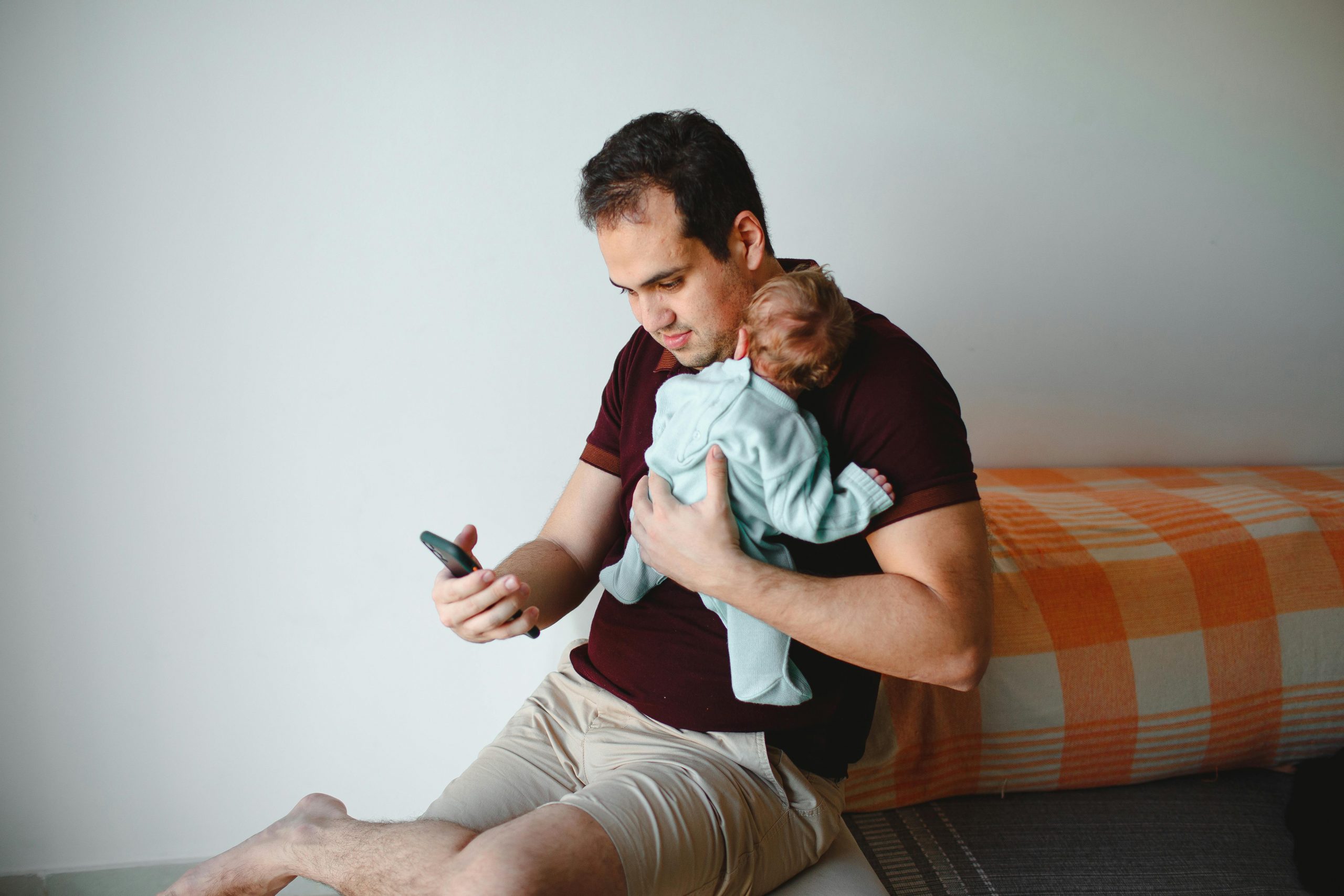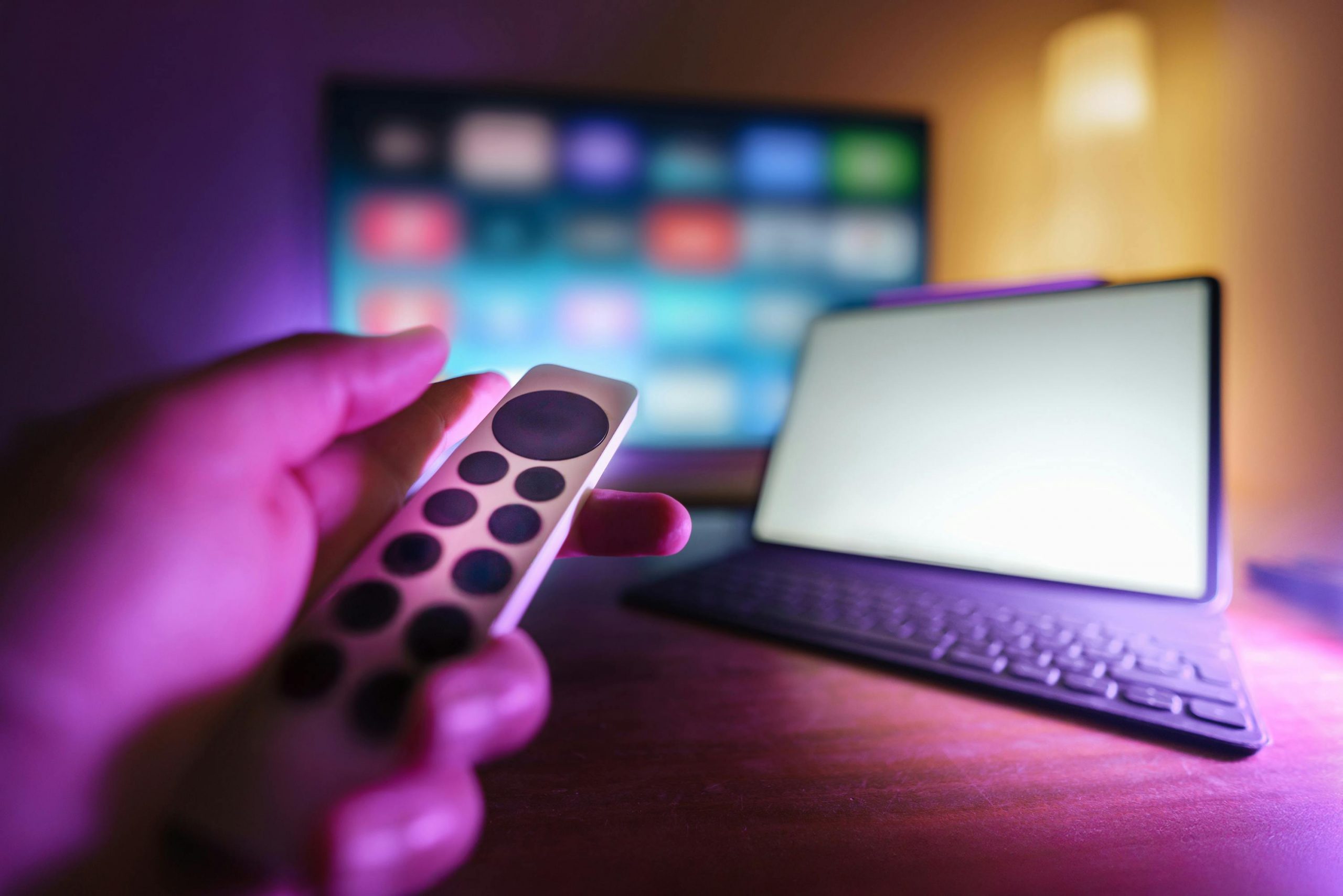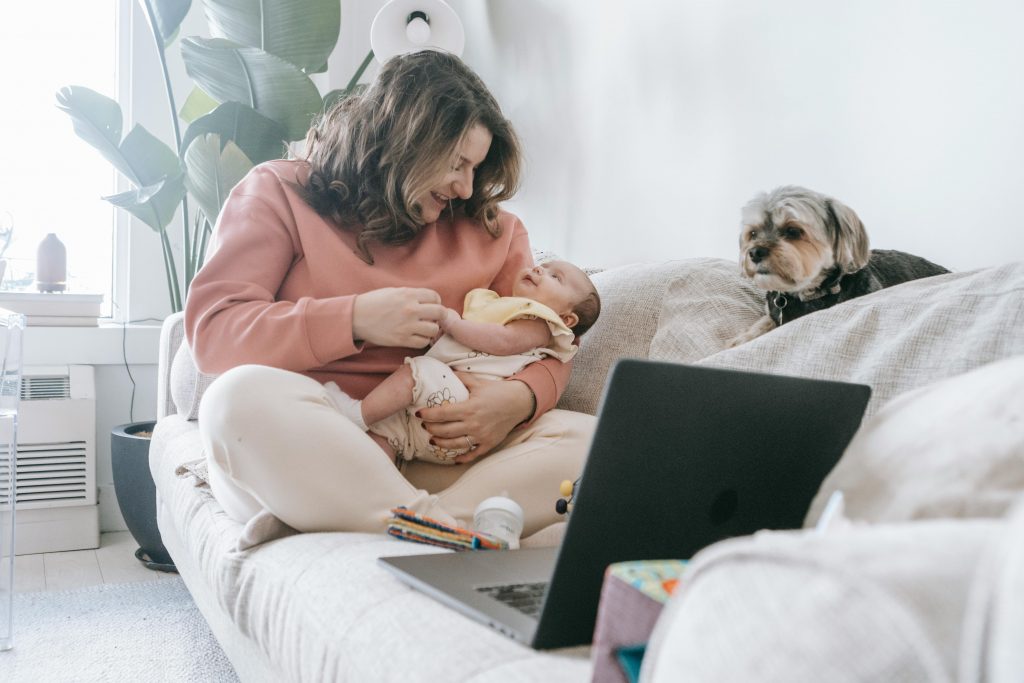When you bring a new baby home, everything changes. You’re sleep-deprived, adjusting to a new routine, and trying to figure out how to care for this tiny human. During late-night feedings or long days at home, it’s natural to want some background entertainment—like watching your favorite TV show.
But many parents ask: Is watching TV with a newborn in the room okay? Will the screen, noise, or flashing lights affect the baby? In this article, we’ll explore what the experts say, how screens may impact newborns, and how to enjoy downtime while keeping your baby safe and healthy.
Can Newborns See or Understand TV?

Newborns have limited vision. They can only see a few inches in front of them, mostly in black and white. They can’t really focus on a TV screen or understand what’s happening. But even though they may not watch TV like we do, that doesn’t mean it doesn’t affect them.
Here’s what matters more:
- Noise and volume
- Flashing lights
- Distractions during bonding or feeding
So, even if your newborn isn’t staring at the screen, the TV can still affect their brain, sleep, and development—especially if it’s on for long periods.
What Happens When a TV Is On Around a Newborn?
You might think that TV running in the background is harmless, but research shows that even background TV can have an effect on babies. Here’s how it may influence your newborn:
1. It Can Disrupt Sleep
Newborns need a lot of sleep—up to 16 to 17 hours a day. But the flickering light and sound from a TV can keep them from falling asleep or staying asleep. This is especially true during naps or bedtime.
2. It Affects Bonding Time
Newborns learn through interaction. They need eye contact, soothing voices, and touch. If your attention is on the screen, your baby may miss out on important bonding and communication time—even if they’re not actively watching the screen.
3. Overstimulation
Loud noise, flashing lights, and constant motion from a screen can overwhelm a newborn’s senses. Their brains are still developing, and too much stimulation can make them fussy, anxious, or overtired.
Is It Bad for Babies to Watch TV?
Even though newborns aren’t really watching TV, it’s important to consider long-term habits. The question “is it bad for babies to watch TV?” is common among parents.
According to the American Academy of Pediatrics (AAP):
- Babies under 18 months should have no screen time, except for video chats.
- Early exposure to TV may delay language, attention, and social development.
So even if your newborn isn’t focused on the screen, making TV a normal part of their daily environment may lead to more screen use as they grow—and that can have real effects on development.
Does Background TV Count as Screen Time?

Yes. Background TV—even if no one is watching it—can still:
- Distract you from interacting with your baby.
- Interrupt your baby’s play and learning time.
- Expose your baby to fast-changing images and sounds.
For example, if you’re feeding or playing with your newborn while the TV is on, your attention is split. This can reduce the amount of language and eye contact your baby receives—which are both critical for early brain development.
Can I Watch TV While My Baby Sleeps?
If your newborn is asleep in a bassinet or crib and not facing the screen, the risk is lower—but some things still matter:
- Keep the volume low. Loud TV sounds can interrupt light sleep.
- Turn off bright or flashing visuals. Even with closed eyes, newborns can be disturbed by sudden changes in light.
- Use subtitles or headphones. This can help reduce noise while still letting you enjoy your show.
It’s best to watch TV in another room while your baby sleeps if possible. But if you’re sharing space—like in a small apartment—these small changes help protect your baby’s rest.
Tips for Watching TV Without Overstimulating Your Baby
If you occasionally watch TV with your newborn in the room, you’re not alone. Many parents do. Here’s how to make it safer:
1. Turn the Screen Away
Keep the TV or screen turned away from your baby’s line of sight, especially during tummy time or feeding.
2. Keep Volume Low
Use subtitles or closed captions and turn the volume down to avoid sudden loud sounds.
3. Limit Viewing Time
Don’t leave the TV on all day in the background. Limit your screen time while your baby is awake.
4. Use Soft Lighting
Avoid bright or flashing images that can startle or stimulate your baby. Choose slower-paced, quieter content.
5. Don’t Use TV to Soothe
Try not to use the TV as a distraction for your baby. Instead, use soft music, rocking, or reading aloud to calm them.
What About Video Chats?
Video calls with grandparents or friends are okay, even for newborns. In fact, the AAP makes an exception for video chatting because it’s interactive and helps babies recognize faces and voices.
To make video chats more meaningful:
- Hold your baby in your arms.
- Talk to the person on the screen.
- Smile and help your baby engage, even if they don’t fully understand.
What to Do Instead of Turning On the TV
If you’re home with your newborn and need background noise or a break, there are healthier options than turning on the TV:
Alternatives to Screen Time:
- Play soft music or nature sounds.
- Listen to a podcast or audiobook with earbuds.
- Talk, sing, or read to your baby.
- Use a baby-safe mirror or colorful books during playtime.
These activities support your baby’s sensory development without overstimulating or distracting them from your face and voice.
Creating a Screen-Free Zone for Baby
It can be helpful to create screen-free spaces in your home where your baby plays, feeds, or sleeps. This doesn’t mean you can’t enjoy TV—it just means setting some boundaries.
Here’s how to do it:
- Designate one area of your home—like the nursery or playmat zone—as a no-TV zone.
- Keep your phone and tablet out of reach during baby playtime.
- Use this time for face-to-face interaction, eye contact, and cuddles.
Over time, your baby will benefit from more focused attention and less screen exposure—even if they don’t fully understand what a TV is yet.
What If You Have Older Kids Watching TV?
If you have older children who watch TV while your newborn is in the room, it can be tough to manage. Here are some suggestions:
- Set viewing limits for older kids. Choose one or two short shows a day.
- Have older kids wear headphones while watching on tablets.
- Encourage quiet activities like reading or puzzles while your baby is awake.
- Move the newborn to another room during screen time if possible.
Balancing the needs of older siblings and a new baby is hard—but small changes make a big difference.
Should I Feel Guilty About Watching TV Around My Baby?
Absolutely not. Parenting is hard, and everyone needs time to relax. If you occasionally watch TV around your baby, that doesn’t mean you’re a bad parent.
The key is balance:
- Avoid long hours of background TV.
- Choose times when your baby is sleeping or content.
- Keep the focus on face-to-face interaction when your baby is awake.
Remember, a happy, relaxed parent is good for baby development too. If watching a short show helps you feel more like yourself, that’s okay—as long as it’s not replacing important bonding time.
Final Thoughts
So, is watching TV with your newborn in the room okay? In small doses, with some adjustments, it’s usually not harmful. But regular screen exposure—especially background noise and flashing lights—can affect your baby’s sleep, learning, and bonding.
While your newborn won’t understand the TV, they’ll benefit most from your voice, your eyes, and your love. So when possible, keep the screen off and focus on interacting with your baby. And if you need a break, take it—just be mindful of your baby’s growing brain.
A little intention goes a long way toward building a healthy, screen-smart environment for your child—right from the start.

















